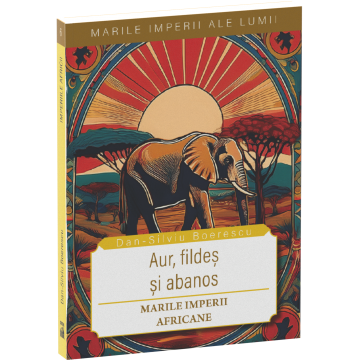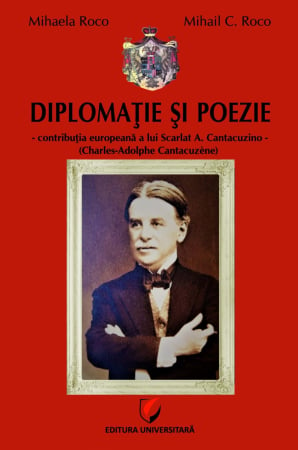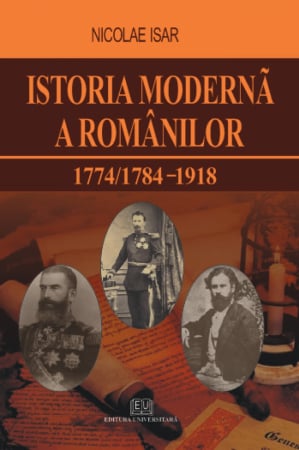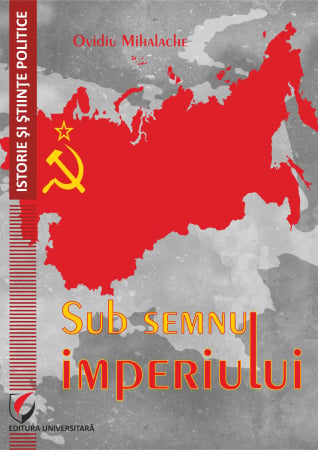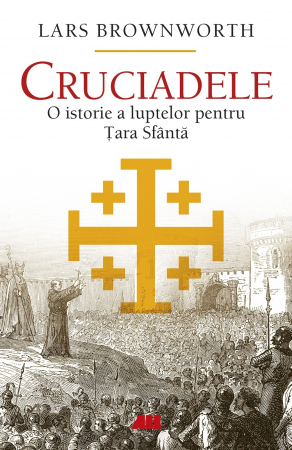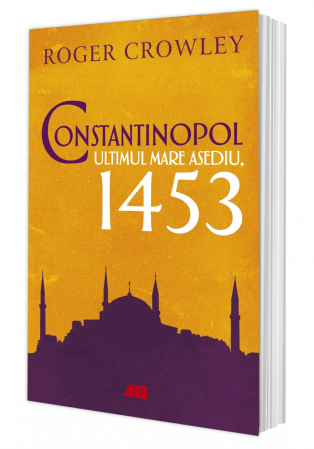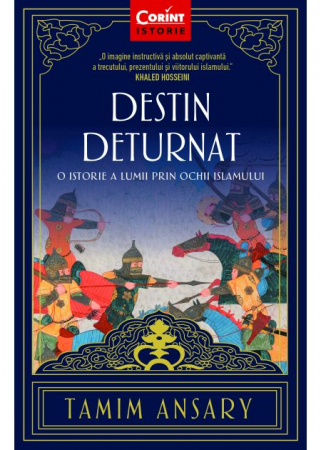ISBN: 978-606-591-148-2
Publisher year: 2011
Edition: III
Pages: 460
Publisher: Editura Universitară
Author: Vidu Bidilean
- Description
- Download (1)
- More details
- Content
- Authors
- Reviews (0)
Spirit of Europe become a reality all the more evident today.
But how many know it, the idea of a united Europe was Montesquieu's developed? Viewed through the prism of current concerns in the field, thinking of this great philosopher had prophetic resonance. Indeed, Charles Louis de Montesquieu century has dominated his life, the creator of modern sociology and political science. It is amazing to observe, for example, the idea of Europe was united in spirit forceful presence of this great thinker, even before two centuries. Montesquieu's view of Europe to grant privileges for the position and function that is in the world, is definitely an idea eurocentrala in the broad sense of the word. He talks of "European citizen" before and more than about "French citizen".
Do not forget, however, that any European citizen belongs, first and foremost a state and enjoy all the rights and obligations under the laws of that State.
In Montesquieu's thought, Europe is the land of freedom, of modesty and diversity, ideas that are required to be recognized, respected and preserved. The principle of balance of powers, for it is true both internationally and within each state. This principle Montesquieu wanted to see it developed harmoniously.
Today, the European Union became a reality, but many problems involve not it? We are still far from truly speak of a united Europe.
The challenges have multiplied from Montesquieu onward.
This material is constituted in a documentary that deals with information and consulting community structures Europe institutions and activities carried out by various organs and body parts of these institutions.
Throughout the paper, there was concern that the study developed to be as close in content and form of the developed European Union, so that ideas be clearly displayed for clear information to those who approach these problems. On this basis, the general structure of sections, chapters and subchapters, was subordinated to just this purpose and, where appropriate, has called for bibliographic references for more detailed information.
In the first edition, the material took into account other objective, that of Romania's integration into European and Euro-Atlantic structures. The interference of two millennia, the goal has become more of a challenge and a challenge. On the one hand, European Community, appear more attractive to the candidate, and on the other hand, the requirements of the integration were located at high levels for new partners. On January 2007, through hard work over the years, Romania has been integrated into EU structures.
Bring this about cordial thanks to the Lord, Prof. Dr. Dr. hc Paun Ion Otiman, Prof. Dr. Ing Liviu Sambotin, SL Dr. Cosmin Salasan (ed scientific reviewers. I) from the University of Agricultural Sciences and Veterinary Medicine of Banat, Timisoara, and Prof. Dr. Ioan Vida President of the Constitutional Court of Romania, Sorin Burtea Engineer, expert in Senate and Ing Ovid Bidilean Viorel, a researcher at the Institute of Agricultural Economics at the Academy of Agricultural Sciences and Forestry in Bucharest, Mr. PhD. Ionut Ifrim, researcher at the Institute of Legal Research of the Romanian Academy and last but not least Mrs. Smith and Mrs. Gabriela Liliana Clocoteanu-Bear-Lucia from CENTROCOOP, who provided support to the development of this paper disinterested editorial.
The author will be full of solicitude to all comments and suggestions received from the readers, in a possible new occurrence.
AUTHOR
-
Uniunea Europeană. Instituţii, Politici, Activităţi
Download
Instituţiile comunitare au un caracter aparte, fiind mult diferite de cele la nivel naţional sau faţă de cele existente în politica internaţională. Analiza modului în care acestea cooperează, a funcţionalităţii lor pune în evidenţă multiple modificări şi ajustări instituţionale de-a lungul istoriei comunitare. Uniunea Europeană este un sistem cu nivele multiple. Se disting trei nivele instituţionale specifice Uniunii Europene: nivelul supranaţional (reprezentat de Consiliul European, Consiliul Uniunii Europene, Comisia Europeană, Parlamentul etc.), nivelul naţional (reprezentat de statele membre cu instituţiile specifice guvernământului: guvern, parlament, partide, asociaţii, opinie publică etc.) şi nivelul sub-naţional (regiuni, landuri, comune, departamente etc. în cadrul statelor membre).
Exercitarea controlului parlamentar, mecanismul de luare a deciziilor la nivel comunitar sunt cu atât mai actuale în contextul în care, deşi Parlamentul European a captat împuterniciri mai mari în controlul Comisiei Europene, Consiliul nu este subiectul unui asemenea control nici la nivel naţional, nici la nivel comunitar. Acesta ar putea deveni un domeniu în cadrul restructurării instituţionale a Uniunii Europene, în care parlamentele naţionale ar putea juca un rol mai mare. O implicare mai puternică a parlamentelor naţionale în afacerile europene va aduce beneficii dezvoltării Uniunii dar şi o mai bună armonizare în domeniile ce implică o cooperare interguvernamentală foarte puternică, cum este cel al politicii externe şi cel al politicii de apărare şi securitate comună. În acest context, este necesară o analiză a instituţiilor care funcţionează la nivelul Uniunii Europene: Parlamentul European, Comisia Europeană, Consiliul Uniunii Europene, Consiliul European, Curtea Europeană de Justiţie, Curtea de Conturi, Comitetul Regiunilor, etc.
Uniunea Europeană trece printr-un profund proces de reformă internă. Progresele în evoluţia politicii externe şi de securitate comune, implicarea şi soluţiile alese de organizaţiile internaţionale şi europene în rezolvarea situaţiilor dificile de pe continent demonstrează că Europa îşi asumă un rol substanţial în arhitectura propriei securităţi, inclusiv în cea de apărare, şi oferă modele de aşezare, pe baze raţionale, echitabile, a relaţiilor dintre state şi naţiuni, prin armonizarea intereselor lor.
Subliniem faptul că dezvoltarea instituţională a Uniunii Europene este inevitabilă. În opinia noastră, acest proces va implica atât iniţiative de ordin constituţional cât şi reamenajări şi dezvoltări în domeniul instituţional.
INTRODUCERE / 7
1. TRATATELE UNIUNII EUROPENE / 9
1.1. Repere istorice / 9
1.2. Tratatele Uniunii Europene / 24
2. UNIUNEA EUROPEANĂ ÎNTRE RESTRUCTURARE ŞI EXTINDERE / 43
2.1. Acţiuni post Maastricht / 43
2.2. Legislaţia europeană / 47
2.3. Procesul de integrare europeană / 55
2.4. Dinamica procesului decizional şi a sferelor de competenţă ale instituţiilor europene / 60
2.5. Cadrul Instituţional comunitar / 64
2.6. Cetăţenia europeană / 69
2.7. Cetăţenii şi justiţia europeană / 75
2.8. Corelaţia dintre Constituţia Uniunii Europene şi Carta Drepturilor Fundamentale / 76
3. SISTEMUL INSTITUŢIONAL EUROPEAN / 84
3.1. Parlamentul European / 84
3.2. Consiliul Uniunii Europene / 92
3.3. Comisia Europeană / 95
3.4. Curtea de Justiţie a Comunităţii Europene / 99
3.5. Curtea Europeană de Conturi / 101
3.6. Ombudsmanul European / 102
3.7. Controlorul European pentru Protecţia Datelor / 103
3.8. Banca Central Europeană / 103
3.9. Banca Europeană de Investiţii / 104
3.10. Comitetul Economic şi Social / 105
3.11. Comitetul Regiunilor / 106
4. SISTEMUL INSTITUŢIONAL NAŢIONAL / 108
4.1. Separaţia puterilor în România / 108
4.2. Administraţia publică locală / 113
4.2.1. Consiliul Local / 119
4.2.2. Consiliul Judeţean / 124
4.3. Administraţia publică centrală, de specialitate / 127
4.3.1. Preşedintele României / 127
4.3.2. Guvernul României / 130
4.3.3. Parlamentul României / 137
CONCLUZII / 170
BIBLIOGRAFIE / 171

Vidu Bidilean He was born in Albesti - Bihar School "Samuil Vulcan" in Beius. Agronomic Institute of Timisoara and Bucharest Polytechnic Institute - postgraduate courses after graduation and to conduct all activities in higher education teaching positions occupied by the professor. In 1973, he received, through competition for an internship, specialization in Paris, the scholarship offered by the ILO - Geneva, the UN specialized body. After the revolution he worked as an expert in the Chamber of Deputies and Senate, general counsel at City Hall, consultant to SC Import - Export LLC ROBOT Cluj-Napoca (Roman-Austrian) and advisor to CENTROCOOP.
They noted that the author of a total of 32 editorial - treated, work, university courses was published alone or in collaboration, the various national and international publishing houses, about 250 articles, papers and studies that appeared in magazines or newsletters scientific, more than 100 teaching materials for use - classes, lessons, practical applications, case studies, analysis and diagnosis, about 120 scientific papers presented at various national and international, over 40 research contracts and agreements with institutions and diagnostic tests economic central research directions county agricultural, PHARE Remember and translations of French novels of Caesar Borgia and Tamerlane.
He participated actively in numerous international scientific meetings - congresses, conferences, symposia, to: Hamburg - Germany, Banff - Canada, Padova - Italy, Malaga - Spain, Prague, Budapest, Copenhagen, Raqqa - Syria, Belgrade, Moscow, Athens, Sofia , Beijing, Cairo to Lisbon, represented Romania at the European FAO General Conference, has been visiting professor at the University of Padova - Italy, and at Montpellier, Ain and Melun - France, supported the conference on economic issues.
Awards: Prize "Titulescu" of the Romanian Academy, "Merit Scholar" Academy of Agricultural and Forestry Sciences "Gheorghe Ionescu-Sisesti" Prize "N. Densusianu "Daco Academy, Honorary Diploma of the National Association" Cult Heroes "orders and medals. He is a member of the Academy Daco.
This paper is the result of sustained research, as he worked during the Romanian Parliament. The entire acativitate Mr. prof. Vidu PhD Bidilean noted that a well-known personality in the economy both in Romania and abroad.

6359.png)
![The European Union. Institutions, policies, activities [1] The European Union. Institutions, policies, activities [1]](https://gomagcdn.ro/domains/editurauniversitara.ro/files/product/large/uniunea-european-instituii-politici-activiti-2080-598336.jpg)


